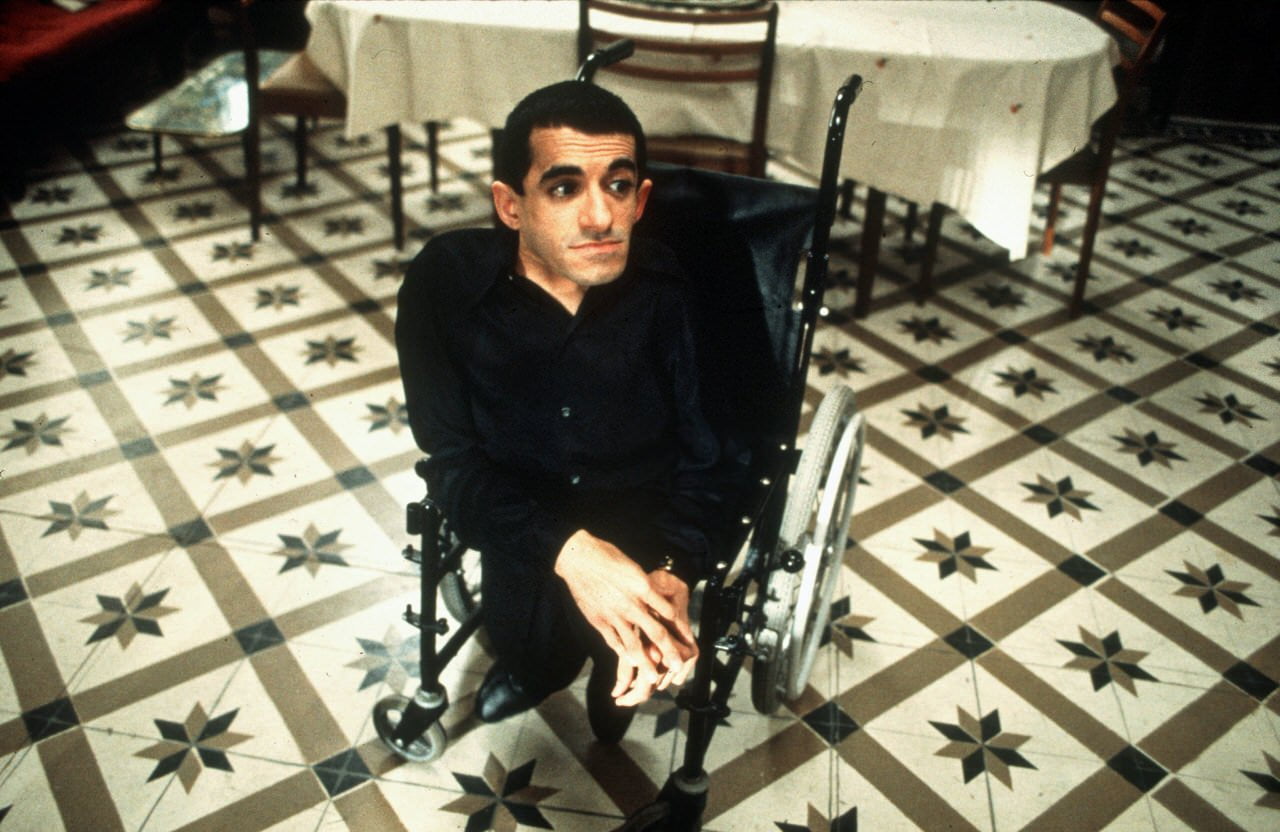Waris Hussein’s film, Sixth Happiness (1997), based on Firdaus Kanga’s autobiographical novel Trying to Grow (1990), is located in the familial framework of an Anglo-Indian Parsi family living in what was then known as Bombay. The family was deeply loyal to the British Empire, to the point of gathering around a piano in family get-togethers and singing ‘Rule Britannia’.
Firdaus Kanga himself plays the protagonist Brit (named for his brittle bones and his mother’s loyalty to the colonial regime, though his actual name is Darius Kotwal), is born with a genetic mutation in his bones, not allowing his bones to develop as they would in an able-bodied person, and permanently saddling him with an inability to walk, as well as not grow beyond four feet in height.
Also read: Margarita With A Straw: A Movie Unafraid To Portray Disability, Sexuality And Queerness
Brit’s parents represent two ends of a spectrum, a mother who constantly cares for him and a father who perceives him as an inconvenience and an embarrassment, till the point of not even acknowledging his son’s existence at his office. The movie also focuses on Brit struggling and negotiating with his sexual orientation, where he oscillates between his initial attraction to girls (Ruby, Tina and Amy) and his desire for Cyrus.
The film brings to us the intersection of three different kinds of marginalization: on a minority community struggling with the post-British governance, sexual minority and disability. Brit grows up in an intensely homophobic family, though he doesn’t realize that he is gay until Cyrus moves into the room across the hall, and doesn’t treat Brit like a fragile and hapless being.
The film has no apologies for portraying a man with disabilities who lusts for a man and acts on his sexual desires, for example reading the Kama Sutra hidden inside a text by Shakespeare. The film traces Brit’s journey of coming to terms with his sexuality as well as forging a future rid of the protectionism that is thrust upon him. Not only does Brit defy the hapless, asexual typecasting of persons with disabilities, but he also refuses to give in to the production and reproduction of normative sexuality.
Narratives on sexuality and disability cannot be treated as separate entities. Universalizing discourse on marginalities and vulnerabilities leads to the elimination of acknowledging differences. In negotiating with his sexuality and his disability, Brit refuses to be an ideal citizen who would be accepted by the then postcolonial nation-state (Sixth Happiness is set in the 1960s and 1970s), who would not contribute to the heterosexual structure and reproductive aspect of citizenship, which the nation-state so desired.

Brit and Cyrus. Image Credit: BFI Player
It is important to see how sexuality and disability operate in each other’s terrain. To quote disability rights academic and activist Anita Ghai on the dominating nature of the male gaze and how it contributes to ableism, “Male gaze makes normal women feel like passive objects, the stare turns the disabled object into a grotesque sight.” By treating disability and sexuality as though divorced of each other and mutually exclusive, this further enhances the silence around the issue of disability and sexuality.
Where Sixth Happiness was a pathbreaking medium was its portrayal of disability without falling into the framework of tragedy revolving around a character with a heart of gold. Brit is presented to us in all his complexities, complete with warts and all. Brit is unapologetically stubborn, arrogant and manipulative – human traits that are perfectly forgivable if the person is able-bodied. He is also very perceptive and extremely funny.
The film unpologetically portrays a man with disabilities, who lusts for a man and acts on his sexual desires.
Sixth Happiness stayed away from the trope of pious persons with disabilities who can do no wrong and are in constant need of protection and rescuing. This trope further feeds into ableist societal tendencies, contributing to the generic reduction of persons with disabilities as fringed societal elements that can only survive on charity.
This particular aspect of the portrayal of disability goes on to fuel patronizing and tokenist attitudes of the able-bodied person. Herein, people with disabilities are always obligated to be “good” people and only then will they be in a position to expect care and dignity as handed over to them by able-bodied persons as a courtesy. Time to time, Brit breaks the fourth wall by directly looking into the camera and addressing the audience with a wry commentary on the ableist and insensitive people he interacts with on a regular basis.
Also Read: ‘Inspiration Porn’ And Deconstructing The ‘Disabled People Are So Inspiring’ Stereotype
Featured Image Credit: Twitter
About the author(s)
Friends with half the dogs in the city, can make a career out of procrastinating and when people engage in body shaming, am quick to remind them that I eat patriarchy for breakfast, lunch and dinner.




